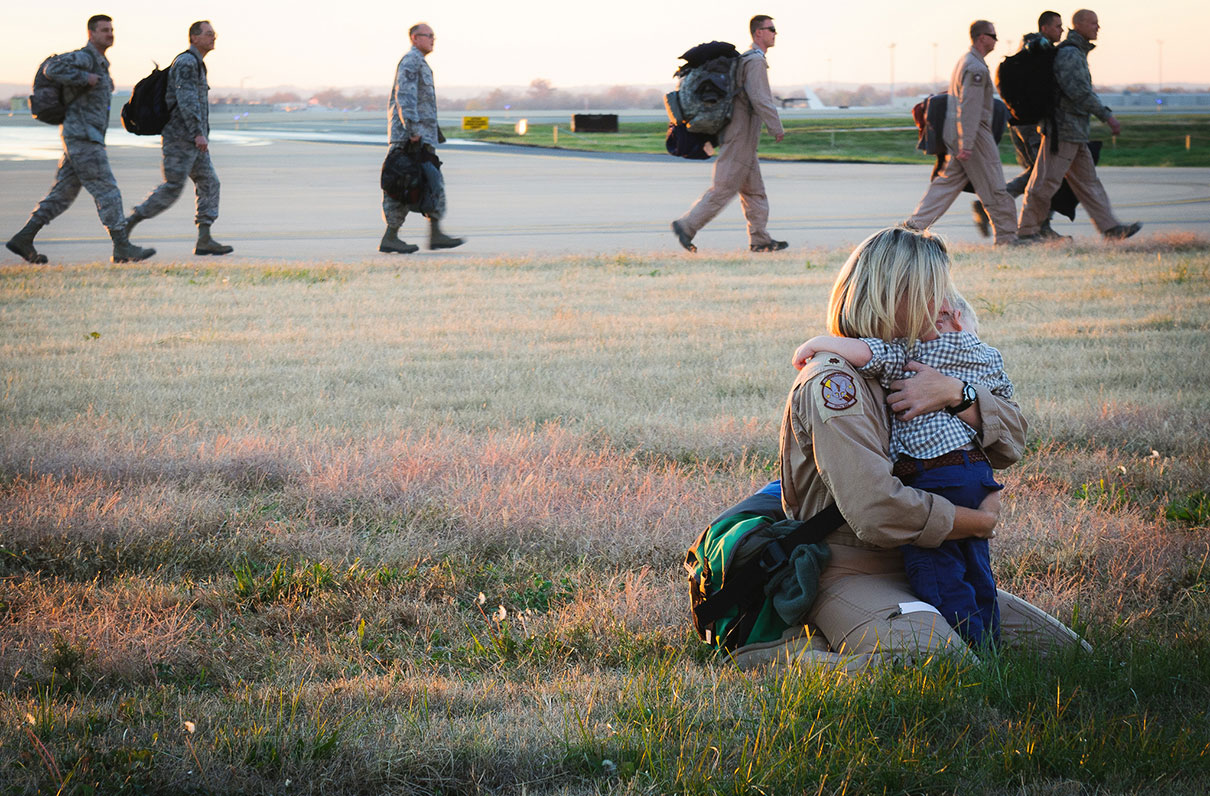Approximately 2,000 National Guard troops are still on the southern border and will remain there for the foreseeable future. This is in addition to the administration sending thousands of active duty troops to augment them. While those of us in uniform understand following orders and mission priorities, we also must inform our leaders of potential problems.
These continued demands on the National Guard can and will have an impact on their families and civilian employers. Balancing the roles of being a Guard or Reserve member and maintaining a civilian career is challenging enough, not only for the servicemember but also for the military. Since the Department of Defense has shifted from a strategic reserve force to an operational reserve force, new demands have been made on both the servicemember and their civilian employers.
In 2016, DoD's Reserve Forces Policy Board (RFPB) recommended to the Secretary of Defense that DoD adopt an official definition of “operational reserve” to ensure the term is solidified in doctrine. The proposed definition is: An Operational Reserve provides ready capabilities and capacity that are accessible, routinely utilized, and fully integrated for military missions that are planned, programmed, and budgeted in coordination with the Active Component. The RFPB explained “approving this definition recognizes the previous contributions of the Reserve Component and the necessity for continued access to meet the needs of the Services, the Department, and the Nation.” This move eliminates the “one weekend a month, two weeks a year” status quo.
During recent discussions at the Association of the United States Army expo, Lt. Gen. Timothy Kadavy, director of the Army National Guard, noted the need for the Guard to keep the bond of trust with families and employers to ensure their continued support. He stressed a balance of responsibilities to accommodate increased expectations out of training events with keeping families and employers in mind.
Lt. Gen. Kadavy expressed concern in reviewing soldiers' tempo and developing a way forward for tracking deployments so controls can be put in place to keep employer and family bonds from breaking.
For example, he has contemplated putting in place policies that would require brigade-level commander approval for activations over 60 days and division-level approval for longer activations. He has also proposed reconsidering how the Guard trains noting that some allied nations conduct quarterly drills as opposed to monthly drills.
Maj. Gen. Victor Braden, commander of the 35th Infantry Division, stated it is the commander's responsibility to inform and influence all audiences about the mission and needs of the Guard. That includes not only the American people at large, but also the families and employers of soldiers. Col. Win Burkett of the 36th Infantry Division echoed these thoughts by explaining the Guard needs to thank employers in such a way that they know without them our nation would not be as ready as it needs to be, stating employers “need to be part of the solution, not an info audience.” Col. Matthew Smith of the 48th Infantry Brigade stated that one of the ways the Guard can assist soldiers in balancing responsibilities is to be clear about expectations and accept absences whenever necessary, other than for critical events.
Col. Nick Jaskoliski of the 142nd Field Artillery Brigade, explained that soldiers are the biggest advocates in communicating back to families and employers about the value and need of the Guard, and that commanders must take that into consideration within their own units. He also pointed out that some soldiers have some very tough choices to make between their civilian and military careers because it is not always true that the Guard will lead to advances in a soldier's civilian career. Col. Jaskoliski said that he uses his own business connections within the local community to have one on one conversations and connections with employers to explain the Guard responsibilities to them. He invites them to a drill, live-fire event, or meetings so they can witness what Guard duty entails. He also hosts quarterly community events such as a barbecue or a 5K race so the community feels that they have ownership in the Guard unit. Col. Jaskoliski has had very good results from this type of relationship building because he finds that the employers respond by wanting to do more to support individual soldiers and be part of the mission, he says.
Command Sgt. Maj. Ted Copeland of the Army Reserve observed that smaller employers are where the outreach needs to be conducted so that they understand the importance of duty and the jobs that soldiers are performing when they are not with their employers. He also noted that Uniformed Services Employment and Reemployment Rights Act (USERRA) has not been significantly updated by Congress since 1972 when the Guard and Reserve roles were much different than they are today. He encouraged civilian employers to show up at the Guard and Reserve centers to speak with the leaders and build the right expectations on both sides.
With expanding roles across the globe and growing needs within the force, finding a way to maintain an operational reserve is vital to national security. Maintaining an operational reserve means finding a way to utilize highly skilled and trained Guard and Reserve members while also allowing them to have a life outside the military.
MOAA has successfully advocated for several expansions in pay and benefits for Guard and Reserve members, and will continue to do so in the future to ensure the force sustains its already long-proven success. MOAA is also working with partners to address Guard and Reserve family issues. If you would like to share your thoughts on these issues e-mail legis@moaa.org or call our member services center at 800-234-6622.
